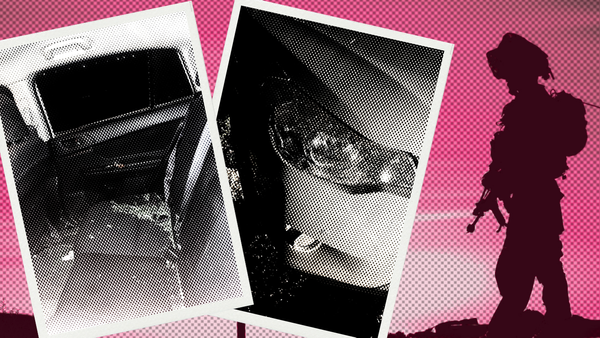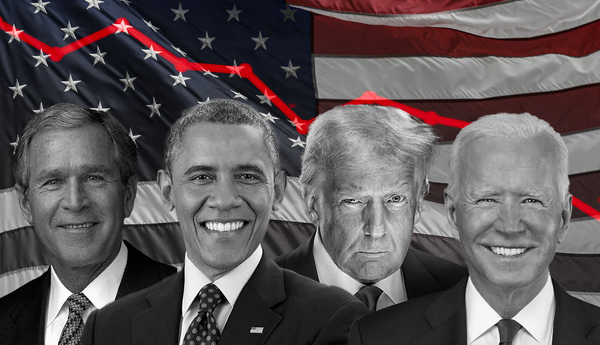On February 24, a story started to circulate online, telling of an encounter between 13 Ukrainian soldiers on Snake Island in the Black Sea and Russian warships. According to the story, part of which was captured in an audio recording, the Russians demanded that the Ukrainians surrender. Then, one of the Ukrainians told the Russian making the announcement to “go fuck yourself,” after which the Russians allegedly killed all of the Ukrainians.
News outlets around the world played a crucial role in helping the story go viral and granting it perceived legitimacy. This includes Canadian media outlets, some of which reported the story as outright fact.
For example, on February 25 Global News published an article stating, “All the soldiers died after the Russians reportedly launched a strike on the island when the Ukrainian troops refused to surrender.” The article’s headline was “‘Go f— yourself’: Slain Ukrainian guards’ last words to Russian warship.” The Globe and Mail also published an article claiming the Russians had killed all the troops, titled “Final moments of Ukrainian border guards’ fierce stand against Russians become rallying cry.” And both Postmedia outlets and CTV republished articles claiming the same, from the Washington Post and CNN Digital, respectively.
On February 26, CBC News published an article about a Ukraine solidarity protest in Halifax, writing, “Speakers also referred to the bravery of the 13 military personnel on Snake Island who refused to surrender to the crew of a Russian warship and were all killed.”
The next day, CBC News published an article that portrayed as a fact the Ukrainian president’s claim that, as they paraphrased, “there were 13 border patrol officers at the outpost, and that they died after refusing to surrender. All 13 have since been posthumously awarded the title ‘hero of Ukraine.’” (There are likely tons of examples on Canadian radio and television as well, but I don’t have the capacity to monitor it all.)
However, the story was wrong: the Ukrainians surrendered, and they were taken as prisoners by the Russians, not killed. Ukraine’s navy confirmed this today.
Mistakes happen, but this series of errors from Canadian media is an indicator of a troubling bias toward Ukraine in coverage of Russia’s invasion of the country, and a sign that their concern for “disinformation” is selective.
Journalists should generally independently confirm things before they report them. That evidently didn’t happen here. At this point, some journalists will retort that they only wrote about the story after Ukraine’s government “confirmed” it. In other situations, that could pass for an explanation, but it doesn’t in this one. That’s because before any of these stories were published, the Russian government offered a different scenario, which turned out to be the real one: the Ukrainians surrendered and were taken prisoner. In fact, some of these stories even mentioned that Russia was disputing Ukraine’s story, but treated it as true regardless.
The writers shouldn’t have done so, and, more importantly, there was no clear journalistic or logical reason for them to, especially considering Russia and Ukraine’s proximity to, and vested interest in, the incident. In terms of proximity, both parties were directly involved in the incident, and capable of knowing what happened to the troops: Russia would know if it killed them or took them prisoner, and Ukraine could eventually find out what happened to them. In terms of vested interests, Russia’s story depicted itself as acting humanely, taking prisoners instead of killing all the troops. Ukraine’s version of the story depicted their troops as extraordinarily brave, and the Russians as brutal oppressors. This was incredibly effective propaganda, as all the news articles, videos, social media posts and tributes around the world about Snake Island indicate.
In other words: both sides were capable of knowing what happened, but had reason to lie about it. As such, the reporters shouldn’t have presented as fact what either side was saying about this story without independently confirming it, which they didn’t do. They should have instead presented the matter as contested, and admitted it wasn’t independently confirmed.
Corrections
When I started writing this article early in the afternoon, none of the publications that presented the false Snake Island story as a fact had issued corrections or retractions. I reached out to CBC, Global News and the Globe and Mail to ask if they planned to do so.
CBC’s head of public affairs, Chuck Thompson, replied: “I can confirm both stories have been updated or are in the process of being updated to reflect the new information. For context, it’s also important to note we reported and attributed what we had at the time, attributing it to the Ukrainian President. We then updated/clarified as soon as we heard differently.”
This is only true for their February 27 article, and, as I noted earlier, it’s not a great explanation because the article portrayed it as a true claim in contrast to the Russian story. Thompson’s statement also doesn’t apply to the February 25 article, which presented the story as a standalone fact without any attribution.
Next, Global News replied and let me know they’d just updated the story. This update clarifies what happened, and notes that the Ukrainian government made a mistake. It fails to note that Global News did as well, but it at least keeps the original story below the update intact, allowing readers to see it for themselves.
The Globe and Mail’s public editor replied last to let me know that the paper had published a new article regarding the incident. The new article does have updates, but it doesn’t note that the Globe helped spread the false story through past reporting. An editor’s note was attached to the original article as well, but it presented the change to the story as an update rather than a correction.
It’s good that these outlets reacted to their mistakes today, but disappointing that none were willing to issue an outright correction. More troubling is that the reasoning they gave for their error (trusting Ukraine at its word, even when contested by Russia) shows they haven’t learned anything, and we’re likely to see the issue again in this war, because they don’t believe they did anything wrong.
The Consequences
What’s particularly strange about this whole thing is that some of the errors I’ve described were made in articles either explicitly written to focus on Russian “disinformation” or containing large sections that do just that.
For example, the Global News article included the Russian narrative on Snake Island — the truth, or at least closer to it — and followed it immediately with this: “Disinformation experts are warning those following the conflict that they should expect to see a lot of state-backed propaganda coming from Russia.” It then included a long quote from a researcher I mentioned in an article recently (about a fundraiser page for Ukraine’s military she helped go viral) about how devious Russia will be in this war.
The February 27 CBC article, meanwhile, was titled “There’s a flood of disinformation about Russia’s invasion of Ukraine. Here’s who’s sorting it out.” The article is about Bellingcat, an “open-source intelligence” publication that was accused in an April 2021 Monthly Review article of helping to launder “National Security State talking points into the press.” CBC’s article goes into great detail about what the group is doing to combat “Russian disinformation.” It portrays the use of propaganda as something only Russians do, citing a “security and intelligence expert” that calls it a “well-worn Russian playbook.”
The result of this is the mistaken impression that Russia is the only force putting out propaganda in this war. It also encourages journalists and audiences to have a knee-jerk reaction when faced with a Russian claim or denial of a Ukrainian one: if the Russians are saying it, it must be wrong. It’s fine to be skeptical of Russia, but some of this skepticism from journalists has more to do with political bias than informed analysis or principles. Of course, the political and media climate over the past few years has also primed journalists and their audiences to act exactly in this manner. The opposite is happening, too: very little effort is being put into debunking pro-Ukraine propaganda, which the Snake Island story very quickly became.
I hope this incident will help Canadians approach reporting about what’s going on in Ukraine with a bit more skepticism and understand that Russia isn’t the only country in the war that can benefit from spreading lies. While Russia may have ‘disinformation’ bots, Ukraine doesn’t need them: Western media often does the job well enough.







